Auto Loans
Affordability
Loan Payment Options
Biweekly Payments
Compare Rate & Term
Rebate vs Low Interest
Home Equity Loans
Lease or Buy
 Transportation Savings Calculator
Transportation Savings CalculatorThis calculator helps commuters and people considering periodic trips estimate how much they might be able to save if they shifted to an alternative like walking, biking or public transportation instead of driving their vehicle. Savings can be estimated for individual or recurring trips using either the cost of fuel or the mileage method. The gasoline method only accounts for the cost of fuel while the mileage method also values your time and vehicle depreciation. If you are making a round-trip and enter in one-way information be sure to either enter the frequence as twice per day or input the roundtrip mileage in your trip details.
Authored by Jose Abuyuan on June 20, 2020
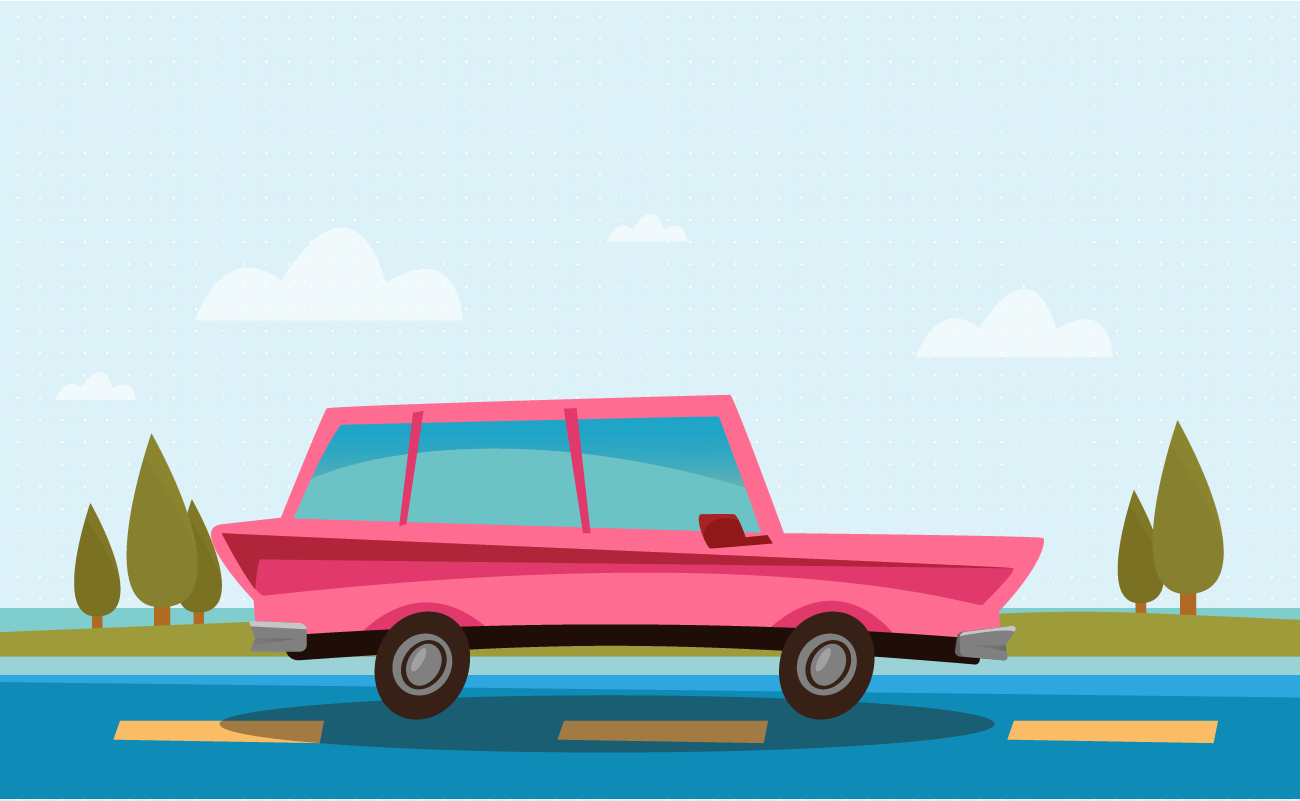
If you’re put off by the costs of a plane ticket and can’t abide by long train and bus rides, then the road trip is for you. As an American institution, this journey has been the subject of songs, movies, and sitcoms.
For cross-country journeys, road trips offer many advantages. Layovers and lines aren’t an issue. You don’t need to worry about your baggage getting lost or carrying everything. If it can fit in the trunk, you can take it with you. It might not always be the fastest route, but you soak in every moment of your trip. It’s as much about the journey as it is the destination. And, depending on how you plan it, it can be much cheaper, too.
Kind of makes you want to hit the road and stop by a diner with a jukebox, right? Not so fast. Pop culture gave us two types of road trip:
Murphy’s Law applies to everything. Even the shortest, least fussy road trip could be derailed by anything that goes wrong. Think thrice before taking a road trip unprepared. Even without an accident, trip budgets could still spiral out of control.
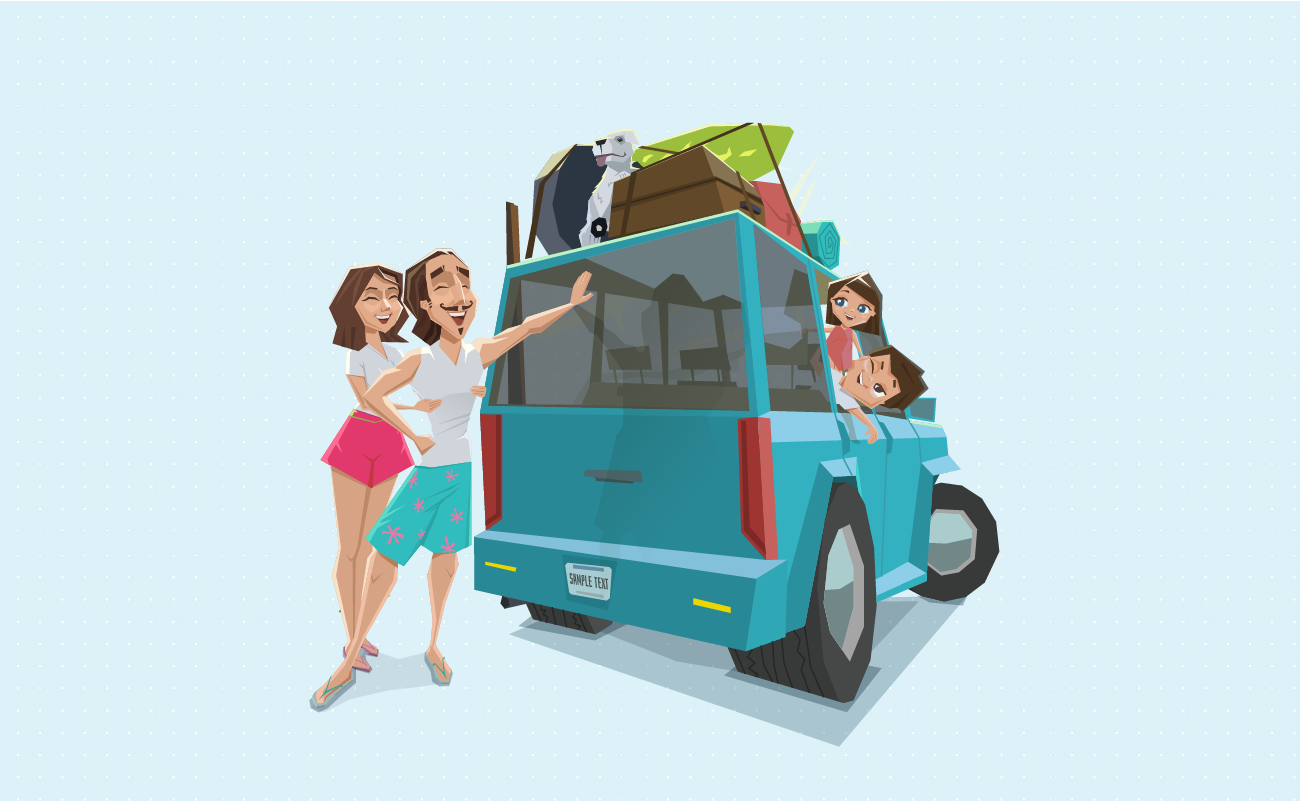
First, you’ll need to get the right car for the right job. One of the biggest challenges you’ll face when planning a road trip is deciding if your car is up to the task. If you own a diesel vehicle with a high capacity for passengers and freight, congratulations. You have the option to take your car with you.
Often, renting a vehicle might be the better option for long road trips. This way, you can tailor your vehicle to the needs of your trip. You also don’t need to worry about overtaxing your car. If you’re going on a cross country trip, you might find renting a camper or a recreational vehicle (RV) better suited for your needs.
The table below explores some of the pros and cons of each of your vehicle options.
| Bring Your Own Car | Rent a Car | Rent a Camper or RV | |
|---|---|---|---|
| Pros | You won’t need to get accustomed to your own car. You’ll often have a better handle of what it can do. You know your car’s mileage and its care condition. |
You don’t need to subject your usual car to the rigors of cross-country travel. You can choose the vehicle best suited for your travel needs. |
You can take many of the comforts of home, including cooking. You can sleep in the vehicle, removing the need to book lodging. You have a much bigger capacity to carry things. |
| Cons | You’re adding mileage to your vehicle. This will hasten its depreciation. Your vehicle might not have enough space or power to carry what you’ll need for the trip. Your vehicle might be a city car ill-suited for long-distance driving. |
You have no clue what your loaner has been through. It can surprise you with unexpected breakdowns. You may not be accustomed to the car’s controls. |
This is not exactly the most fuel-efficient way to travel. Finding the right place to park might not be as easy as you think. This is also the most expensive option. |
| Useful for | Travel between two cities within a state or county (assuming you drive a diesel vehicle) Shorter one-or-two day trips |
Trips that last for a few days or weeks Longer, cross country trips across vast distances |
Trips that take several weeks or a few months Expeditions to wilderness areas |

If you are leasing your car, don’t use it for the trip. Using your loaner will add needless mileage to your limit and put you at the risk of penalties. Instead, lease a different car for the journey.
Vehicle depreciation is one of the biggest risks of taking your own car on a road trip. In the first year your car depreciates in value between 15 to 25 percent. A road trip from Los Angeles to New York City and back amounts to more than a third of your yearly average mileage! To learn more about depreciation, check out our calculator on operating cost.
Making sure your vehicle is up to the task shouldn’t stop with selection. A bit of preventive maintenance can stop accidents before they happen. Take your chosen ride to the shop and have it checked for any issues. A trusted mechanic can judge if your vehicle can take the rigors of the open road. We cannot stress this enough. Remember the pain and frustration of a car breaking down while on the commute to work? Having it happen in the wilderness is several orders of magnitude worse. Baking desert, creepy woods, or corn field, it doesn’t matter. If you’re stuck in a place with no cell signal, it’ll be difficult and costly to get the help you need.
Check all six of your car’s essential fluids: lubricating oil, radiator fluid, brake fluid, steering fluid, transmission fluid, and windshield fluids. These are vital to ensuring your car’s performance on a long journey. You’re going to need these systems to be reliable throughout the whole trip.

Always bring a tool kit with you. If you’re up to it, you can do some of the basic repairs yourself. In a pinch, this could buy you a bit of time to get to a mechanic.
Keep your tires inflated. Correct tire pressure reduces friction, ensuring a smooth drive down the highway. Besides ensuring a smoother ride, you’ll also cut back on fuel waste due to friction. Be careful not to overinflate, though, as it will wear out your tires. Make sure to check your tires every 1,000 miles or so. Take note of the weather. Changing temperatures can cause dramatic shifts in tires’ internal pressure. Finally, a long journey can wear the tires out fast. Expect to change tires along the way back.
Moreover, many of these chores are part of a car’s regular maintenance schedule anyway. If you’re taking your own car, you’d be hitting two birds with one stone.
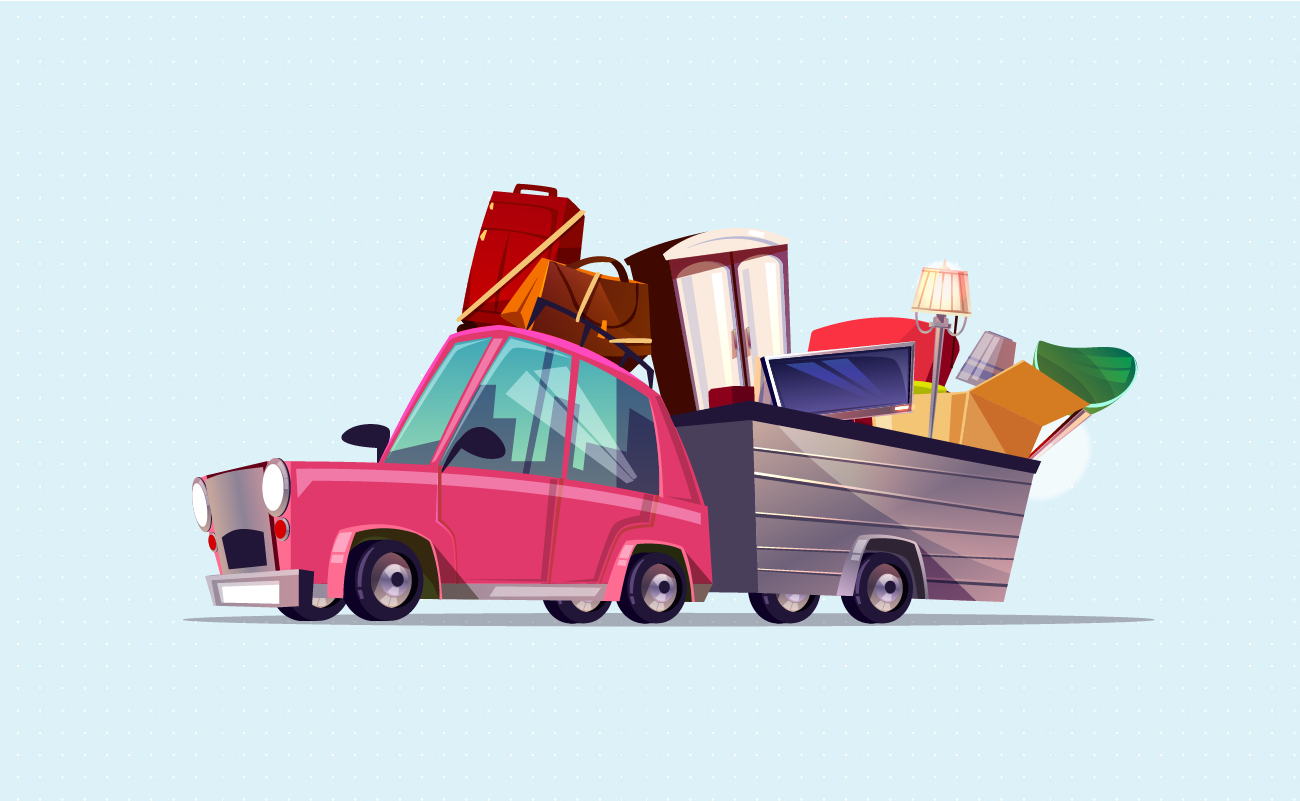
The nature of the trip decides many of the things you’ll need to prepare for. A joyride with your family carries less stuff than driving your teenager to college. You might need to lease a higher capacity vehicle if you’re traveling longer or with more people. A powerful vehicle works best if you’ll be bringing or towing along heavy equipment.
If you’re going on a cross-country camping trip, luggage and bike racks can make more elbow room within the car. Likewise, you’ll need to keep your luggage secure. A heavily stocked car is a magnet for unsavory fellows.
Carrying too much weight can affect your gas mileage. Pack only the absolute necessities when going on a trip. If possible, stock up while on the road. Choose your stores wisely. A convenience store comes with markups that can eat away at your food budget.
Understand what you’ll need to bring along based on who’s coming with you. Bring with you anything your companions may need such as medicines. If you have small children, provide them with a few games to keep them entertained through the trip. Remember, road trips are meant to be fun.
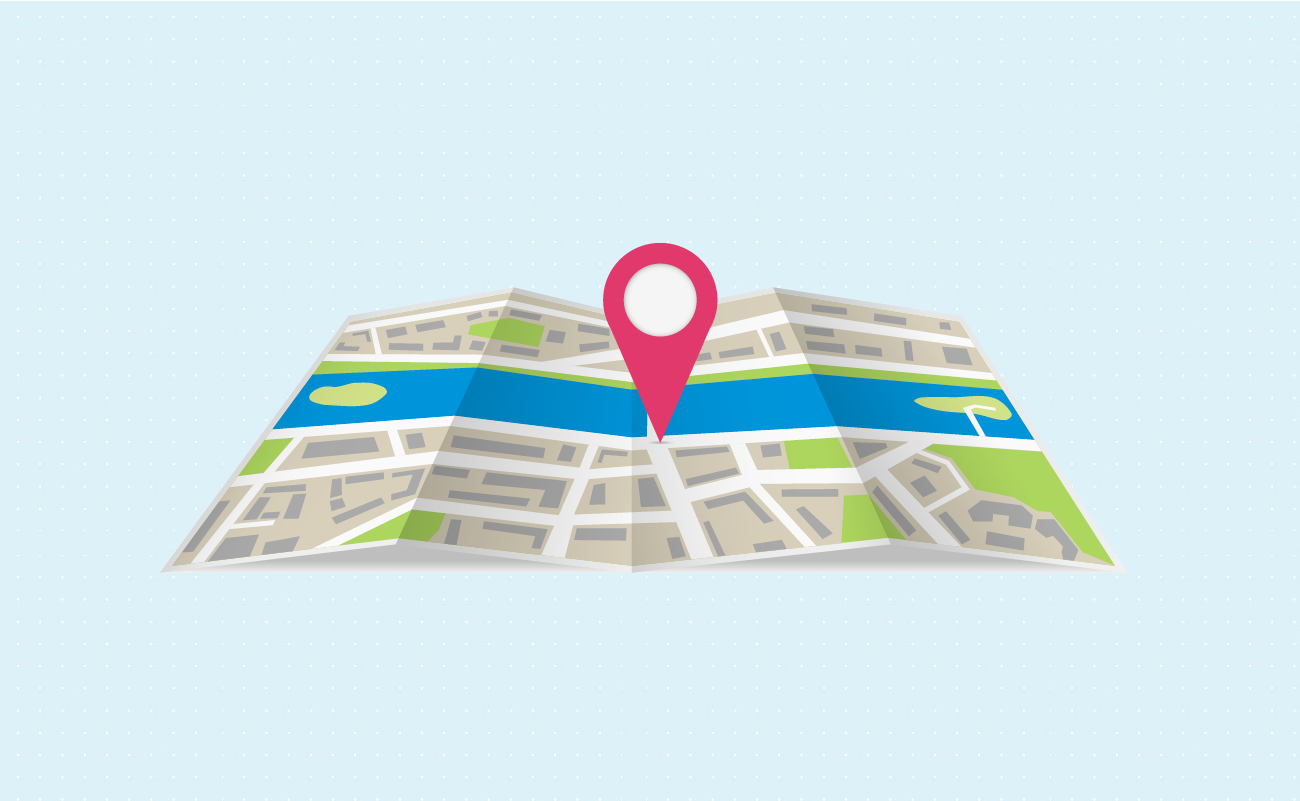
Planning the trip can make or break your journey down the road. For some, the complex trouble of planning a road trip from start to finish can be off-putting. There’s just so much to research that it can be overwhelming. But planning is your greatest ally. Thinking several turns ahead can help you slash the biggest expenses on the road.
Today, the advent of the Internet has removed much of the hassle that comes with planning a road trip. Open your computer or smartphone and start mapping.
The first thing you’ll need to prepare, of course, is the route. You’ll need to choose a route for speed. If it can get you there faster, you’ll spend less money on fuel throughout the trip. This also works for city drivers. You may visit this page for our tips on minimizing everyday fuel costs.

Straight lines may be the shortest route between two points, but that’s not the case with roads. Shortcuts don’t always lead to long delays. An alternate route with less traffic is often faster than a shorter one with more congestion.
Nothing kills the mood of a road trip than traffic. You’re on the road to get away from it all. Cross-country vehicles are also not built to take traffic jams. Thus, you’ve got to choose your routes to avoid the traffic. Identify the major sources of congestion and steer clear of them. Some of these include road construction, accidents, and thoroughfares with plenty of intersections.
Most of these problems are concentrated on major cities. If the next big city en route is not your destination, it is wise to drive around it. If you live in the big city, leave as early as you can to avoid rush hour.
Have a route for when you get there. Be sure to have each of your target destinations mapped out. Make sure to chart the best route for all of them. In addition, get the operating hours of each destination and arrive on time. This way, you’ll save on gas and travel time and tick everything off your list with efficiency.
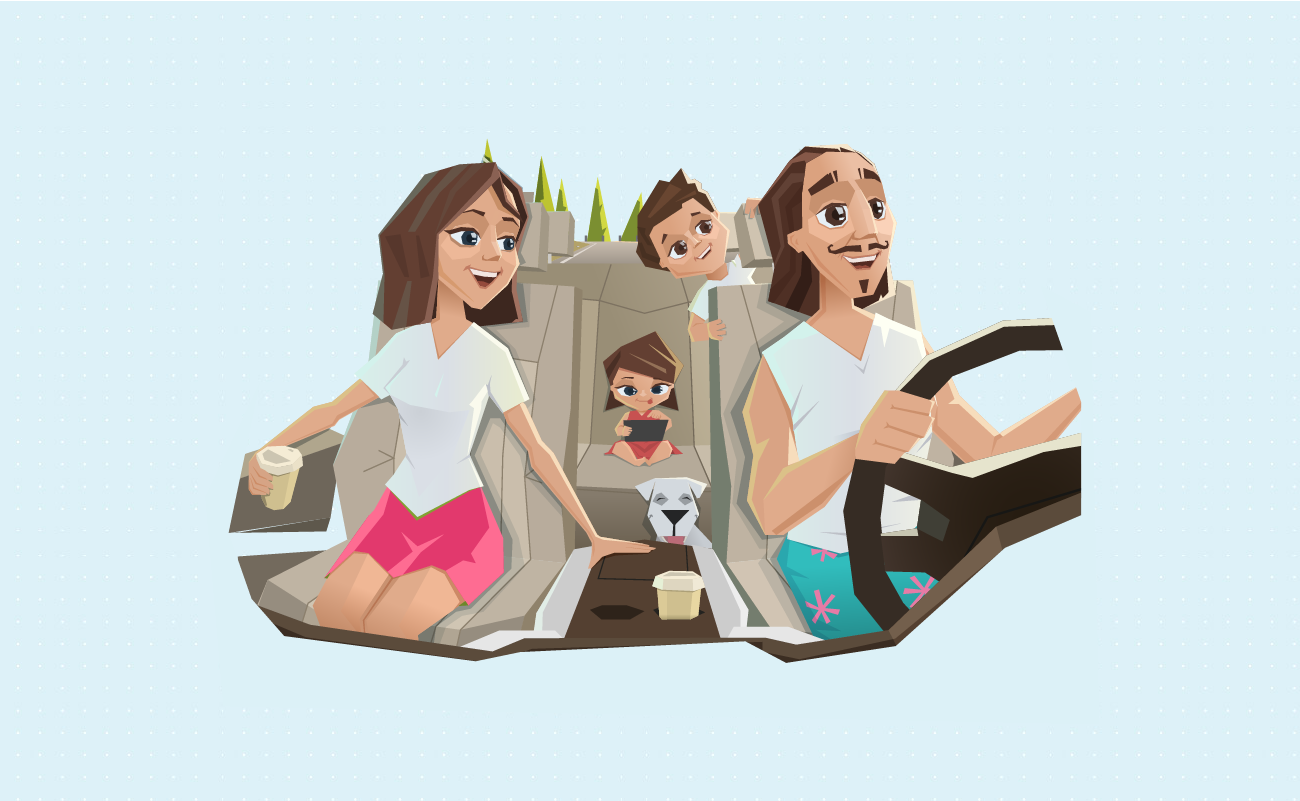
It tolls for thee and anyone else who decides to take it. Toll roads are a big budget buster on a road trip. Reduce your dependence on toll roads when planning your routes. Unless they can get you there faster, the toll roads are usually worth avoiding.
If your fastest route needs a shortcut through a toll road, get a quick pass. These will help you minimize the time and costs of passing through a toll road.
Include stopovers for gas when charting your course. You’d want to select generic gas stations over branded ones for each stop. By buying from places that offer fuel for less, you can save a lot over the course of the trip. Besides, the brand of the fuel makes no real difference to your car. As long as you can get the recommended fuel for your vehicle, you’re good.
If you’re riding an RV, plot a course for all the places you can park. Federal lands that allow parking offer a free and picturesque place to stay for the night. Just be sure to keep it as clean as when you found it. If you’re in a city, look for the appropriate RV parks on your route. Identify the cheapest places to park your vehicle in advance. This can save you a lot of time and money.
Moreover, you can save a lot on your trip by booking everything in advance. This includes destinations and lodging. Book the hotel, motel, or AirBnB accommodations you have before you leave and get there on time. You’ll spend way less and be guaranteed a place to stay for the night.
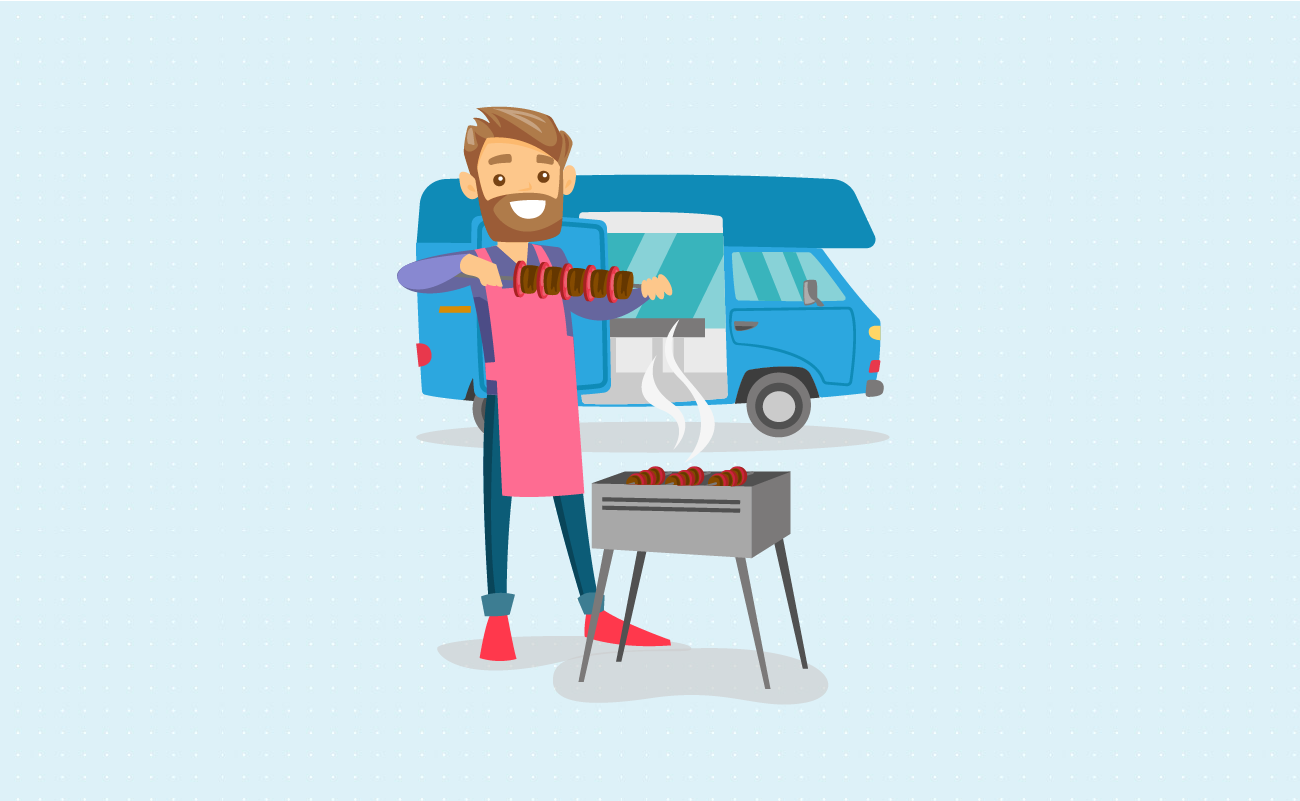
Take-out, drive thru, and constant stops at the convenience store can cost you a pretty penny. Prepare a dedicated food budget for your trip and bring some of your own snacks with you. A trip to the grocery before the trip is much cheaper than going to every convenience store on the way.
Much like you would at home, you’d save a lot more money if you cooked your own food. On shorter road trips, you could make a packed lunch for your co-travelers. With this, you can have a picnic lunch somewhere picturesque. It’s double the fun as a moment for Instagramming.
If your road trips take longer than a days, consider stopping by a grocery store and cooking on your own. This is easy for people taking an RV or a van, of course. You can also book accomodations at vacation houses and condos with kitchens instead of hotel rooms. If your stops contain places where you can go grilling, that’s good, too.

If you don’t have an RV or camper, you can still cook some of your own food by getting a camping stove. This will work even better if you make frequent trips to the wilderness.
Do the same with water and coffee. Few everyday items are as scammy as bottled water. Bring and brew your own java and carry refillable jugs of water. The reduced number of trips to Starbucks alone will save you tens of dollars for your caffeine fix. The decrease in plastic cups and bottles will also make your trip more eco-friendly.
Part of the fun of the trip is eating at places you’ve never been to before. Don’t deprive yourself the full culinary experience. Savor the local favorites and see what the big deal is about. After all, you don’t make road trips everyday. Keep trips to McDonald’s and other common franchises at a minimum. You already know what they taste like.
Everywhere from Disneyland to that tacky roadside tourist trap has a gift shop. Sometimes, you just can’t help but get something for the trip. If you must buy things from there, set a budget and stick to it. That way, you’ll at least have that sort of spending under control.
Focus on getting meaningful souvenirs that capture the fondness of the event. Pressed pennies often hold more meaning than a tacky snow globe or knick-knack. If you must get tacky souvenirs, shop further from the attractions themselves.

Avoid going out of your way to tourist traps that aren’t worth it. Do you really need to go through a gift shop for something even a child won’t be mesmerized with?
Whether you arrive cross country or across the border, you are a guest at your destination. Be in your best behavior and follow the rules and regulations of your hosts. Take note of the important guidelines surrounding the place before visiting.
One of the most important guidelines are traffic laws. Be sure to avoid violating their parking rules and regulations. Parking tickets and other fines can cost you plenty.
Here are three other rules to remember when traveling:
The last thing you need is getting into expensive legal trouble halfway across the country.
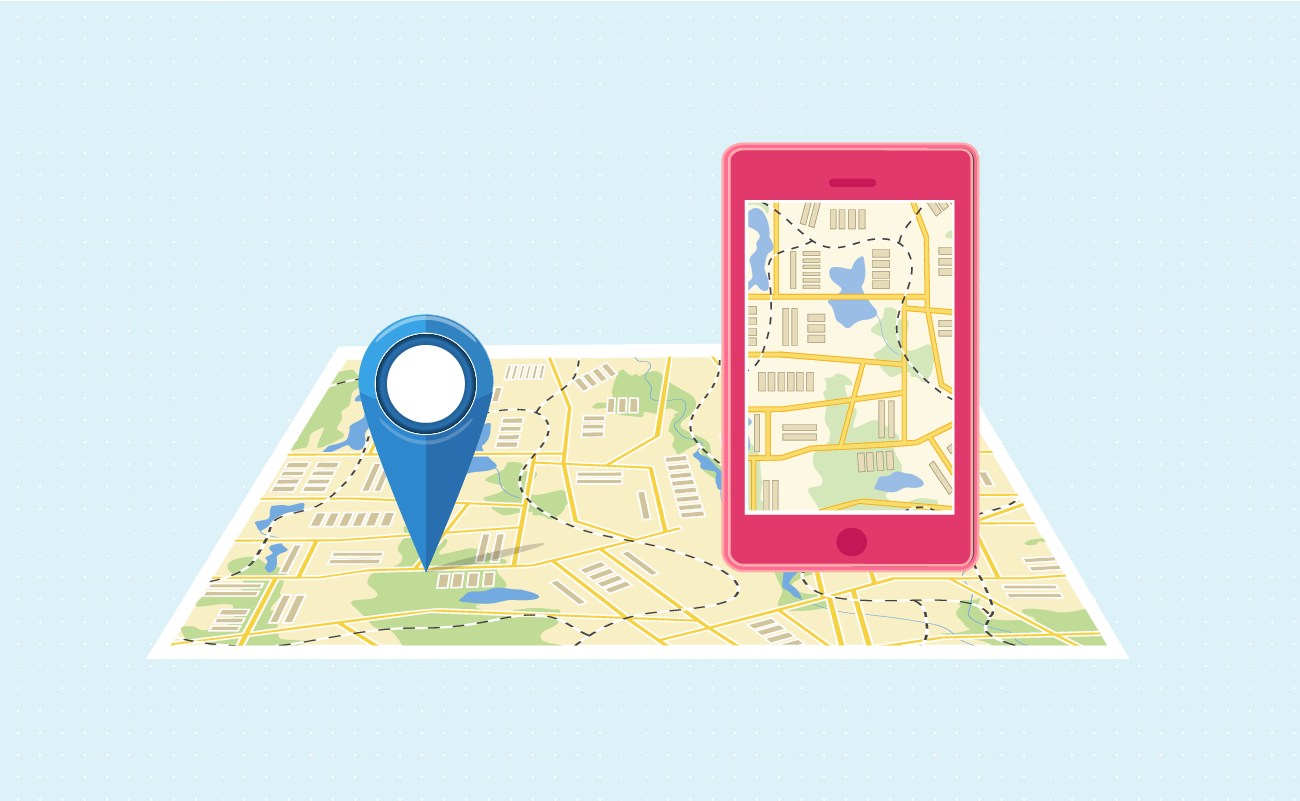
Today, phone apps are a ubiquitous aspect of everyday life, travel included. They can remove much of the hassle that comes with planning your trip. With the right phone apps, you can:
Be careful when an app tries to get you on the shortest path, though. You might end up passing through several toll roads. Apps might also be difficult to use in areas with poor Wi-Fi connections. For some apps, such as Google Maps, you can use an option to avoid toll roads when calculating routes.
You’re going on a road trip. Don’t take the burden of planning by yourself. Involve your spouse, kids, friends, parents and whoever else is coming with planning and preparing. Get yourself plenty of rest for the journey ahead. And if the drive’s got you exhausted, switch places with someone else at the driver’s seat and get some rest.
And while you’re at it, ease your worries at home and go debt-free.
Jose Abuyuan is a web content writer, fictionist, and digital artist hailing from Las Piñas City. He is a graduate of Communication and Media Studies at San Beda College Alabang, who took his internship in the weekly news magazine the Philippines Graphic. He has authored works professionally for over a decade.